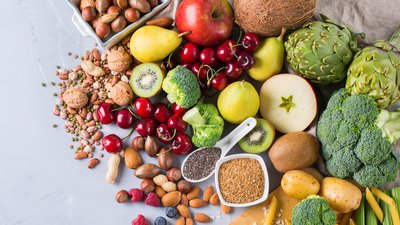Plant-based eating is becoming increasingly popular, with more people ditching burgers and chicken for vegetarian alternatives every day. Cutting back on your meat consumption offers wide-ranging potential benefits, from losing weight to feeling more energetic, but a common concern is whether a plant-based diet can provide all the nutrients you need, especially if you lift weights or play sports.
The good news is, yes, it absolutely can, but you have to be strategic. Here are the FAQs on what you need to know to build a plant-based diet with enough power to fuel an active life.
What do you eat on a plant-based diet?
Being on a "plant-based diet" means you're eating mostly plants, but you may sometimes eat animal products, too. It's different from a vegan diet, which means you eat only plants.
"Vegan diets may also be referred to as plant-based; however, individuals who sometimes eat meat can follow a plant-based eating pattern, too," explains Kelly Jones, MS, RD, CSSD, LDN. Plant-based eating also implies enjoying said plants as close to their original form as possible.
"A plant-based diet emphasizes whole plant foods such as legumes, whole grains, vegetables, fruits, nuts, and seeds as the stars of most meals and snacks," says Jones. "It may include animal products, but the frequency and portion sizes of animal products are smaller than in most conventional American diets."
What are good plant sources of protein?
Soy, one of the most popular plant proteins worldwide, is a great option. Soy products such as tempeh, tofu, and edamame are easy staple foods, with a high protein count per serving.
Says Jones, "Soy is well known as the most high-quality plant protein when it comes to essential amino acid content and bioavailability."
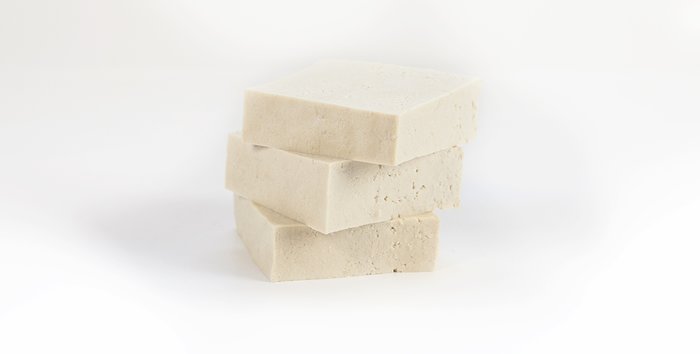
Despite the popular myth that soy will mess up your hormones, research suggests that to the contrary, isoflavones in soy may provide a variety of health benefits.[1] So, grill up some soy burgers or make a stir-fry with veggies and cubed tofu for an easy weeknight meal.
Other legumes such as beans, lentils, and split peas are also high in protein, as are grains such as faro, quinoa (technically a seed but acts like a grain), and bulgur.
Nuts provide protein, too. Eat lots of high-protein nuts like pistachios and peanuts (technically a legume but acts like a nut). Other nuts such as macadamias and pecans are lower in protein but high in other important nutrients, so don't count them out.
Can you get enough protein from plants?
You may wonder how you're going to live without steak and chicken for muscle repair and recovery, but you can actually thrive on plant-based proteins, with a little meat if you want. The key is to eat a wide variety of plant proteins every day. While animal proteins provide all the essential amino acids your body needs for muscle repair and growth, most plant proteins contain some, but not all EAAs. (Quinoa, soy, and pistachios are the exception, as they each provide the full lineup of EAAs.) By including a mix of whole grains, nuts, seeds, and legumes in your diet, you can rack up all the EAAs you would get from animal sources.
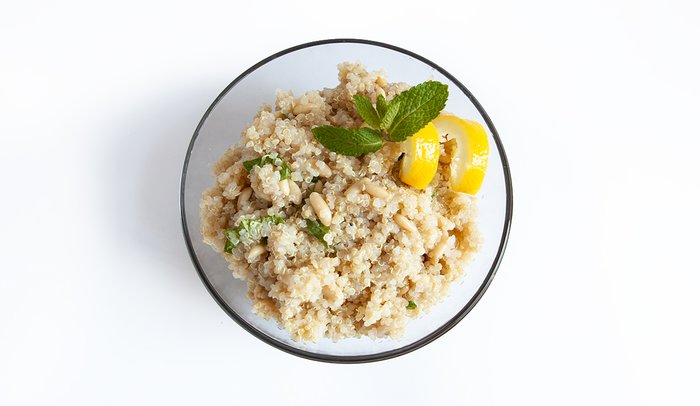
To maximize your EAA intake, Jones suggests prioritizing the grains, legumes, and nuts that are highest in protein. For example, rather than pairing lentils with rice, which is low in protein, consider swapping the rice for faro or quinoa which are both higher in protein. And spread your high-protein whole-grain bread with peanut or pistachio butter, rather than cashew butter, which is lower in protein than the others.
As you begin to replace animal products in your diet with plant-based alternatives, keep in mind that these foods are sometimes lower in protein than their animal counterparts.
"Foods such as jackfruit, almond milk, coconut yogurt, and many veggie burgers do not contain significant amounts of protein," Jones says.
Be creative with your meal planning. Add hemp and chia seeds to that coconut yogurt to up the protein. Pour almond milk over granola with nuts. And remember, it's still OK to eat meat in moderation, so when it's time to fire up the grill, an occasional turkey or chicken burger can be a good choice.
Why is leucine important?
All the essential amino acids are important for health, but the one that's most important for muscle and strength is the branched-chain amino acid leucine. If you eat a variety of plant foods but still feel you aren't maximizing your fitness gains on a plant-based diet, you may need more leucine.
"Leucine is the BCAA found to act as an important trigger to muscle protein synthesis post-workout, and it's found in greater amounts in tofu, soy milk, adzuki beans, lentils, buckwheat, and pumpkin seeds, for example," Jones says.[2]
You can also up your leucine with a BCAA supplement. Look for plant-based BCAA products—if it isn't labeled as vegan or fermented, it's probably made from animal sources.
Should you use plant-based protein powder?
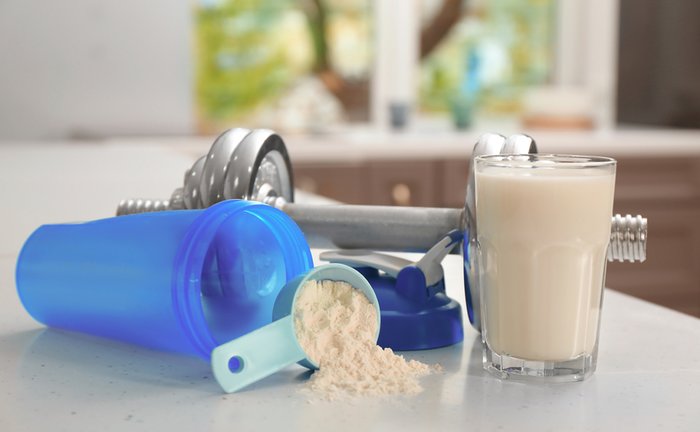
While it's possible to get all the protein you need from whole plant foods, a plant-based protein powder offers a little extra insurance, especially if you do strength sports or bodybuilding and have great protein needs. Using protein powder from rice, peas, hemp, or soy in a shake, as well as putting it in recipes, can aid muscle growth and strength, in addition to keeping you full and reducing cravings. Blend in greens, nuts, seeds, and fresh fruit for a healthy, nutrient-packed smoothie to speed muscle recovery after workouts.
Do plant foods provide enough calories and carbs?
Plant-based diets can help promote a healthy weight since they naturally help curb your appetite, but sometimes they work too well.
"When transitioning to plant-based eating, you are naturally going to include more fiber in your diet, which promotes feelings of fullness," says Jones. "While this is a good thing for most people, and fiber offers many other health benefits, it may lead to premature fullness as your body adjusts to its new eating pattern."
Plus, fruits and veggies tend to be lower in calories, so your total calorie intake could go too low without you noticing. You want to make sure you're still eating enough calories to fuel yourself and repair your muscles, especially if you're active. The same goes for carbs.
"Be sure to include carbohydrate sources lower in fiber before and during exercise, and don't fear a little extra fruit or even 100 percent juice to ensure adequate calorie intake," Jones says. Bananas, potatoes, cereal, bread, and rice cakes are all good low-fiber options.
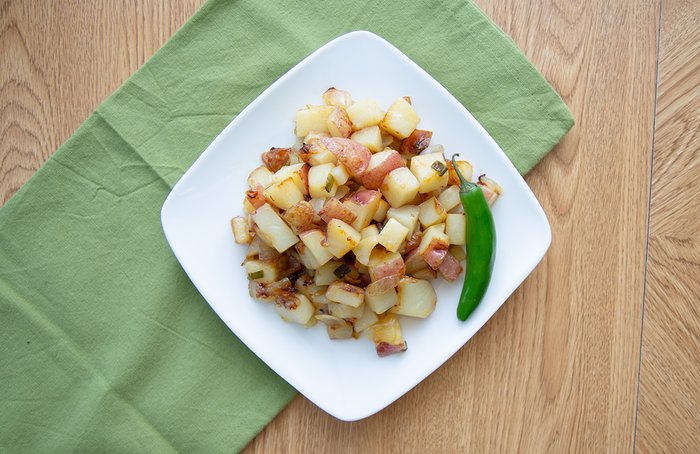
"Since carbohydrates are the most efficient source of energy for high-intensity exercise and the central nervous system, and they have a protein-sparing effect, limiting calories and carbohydrates can contribute to muscle loss or at least impair the ability to optimally repair and grow muscle," Jones cautions.
So, don't just eat veggies all day—add those great grains, beans, legumes, and fruits rich in complex carbs and fiber, as well.
What supplements should you take while on a plant-based diet?
Despite the wealth of vitamins and minerals plant foods offer, some nutrients are difficult to get enough of from plants. If you're cutting out animal products entirely, Jones advises taking a vegan vitamin B12 supplement, as animal products are the main dietary sources of this essential vitamin.
It's also a good idea to supplement with a vegan vitamin D3, since it's hard to produce the active form of vitamin D in the body, beyond sun exposure. Vitamin D is important not only for bone health and antioxidant power, but also the role it plays in fast-twitch muscle fiber reactions, which are extremely important for strength training and athletics.
For females, iron supplements may be helpful when transitioning to a plant-based diet, but it is possible to get the iron you need from plant foods such as green vegetables, especially when combined with other foods.
"Vitamin C enhances plant-iron absorption, so try to include a source of vitamin C at most meals and snacks," Jones says. "Think citrus, kiwi, peppers, potatoes, spinach, and broccoli."
But if you're having symptoms of iron-deficiency anemia despite eating plenty of foods containing iron and vitamin C, consider consulting a nutritionist.
Omega-3 fatty acids are also difficult to get from plants. If you do include occasional animal foods in your plant-based diet, taking fish oil or eating fish can provide the omega-3 fats you need. Otherwise, consider an omega-3 supplement made from algae.
References
- Rizzo, G., & Baroni, L. (2018). Soy, soy foods and their role in vegetarian diets. Nutrients, 10(1), 43.
- Breen, L., & Churchward-Venne, T. A. (2012). Leucine: a nutrient 'trigger' for muscle anabolism, but what more? The Journal of Physiology, 590(Pt 9), 2065.

